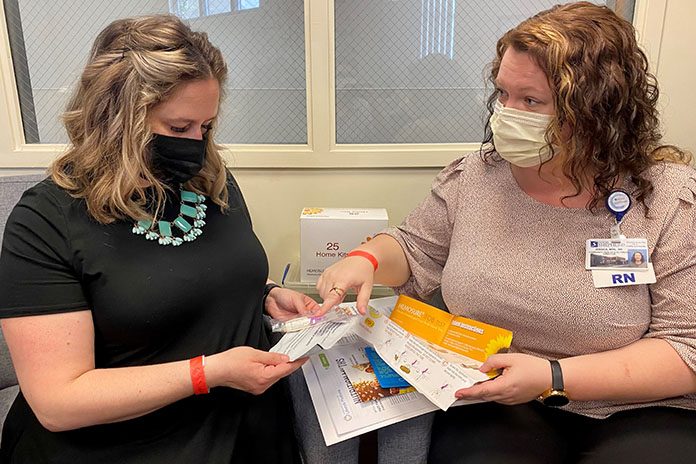
A Good Shepherd Health Care System pilot program is under way with the aim of increasing both awareness of colon cancer and individual screening rates.
Good Shepherd’s Colon Cancer Screening and Prevention program is one of many projects around the state to receive grant money to address cancer-related needs. The OHSU Knight Cancer Institute’s Community Partnership Program has awarded funding to 179 community-led projects.
In Hermiston, Good Shepherd will be passing out fecal occult blood test kits for adults ages 50 to 75 to use at home. Good Shepherd’s screening efforts will include a strong focus on engaging the Spanish-speaking community.
Jessica Reker, director of Community Health & Outreach for Good Shepherd, said the program will be partnering with the Good Shepherd Medical Group to educate providers about the importance of talking with patients about colon cancer screening.
“We’ve had grants in the past to purchase and pass out kits, but we’ve never had a very good return rate,” she said. “So, by working with health care providers, we hope see a higher return rate.”
Part of the program will involve pre- and post-screening interviews with patients to provide information on how to prevent colon cancer and what to do if a screening comes back positive.
Catherine Wisniewski, M.P.H., CHES, community health educator at Good Shepherd, said the program is based on similar projects in other communities.
“The project blueprint is based on benchmark programs developed in similar rural populations across the United States,” she said.
Colon cancer accounted for 51,869 deaths in 2020 – the second-leading cause of cancer death in the United States. Good Shepherd performed 985 colonoscopies in 2021.
Reker said the pilot program will run for one year and then the results will be analyzed.
“If it’s deemed successful, we will be able to continue it with internal funding,” she said.
Reker said test kits will be distributed throughout the year at health fairs and other public health events.
For more information on colon cancer screenings, visit the Good Shepherd website.








